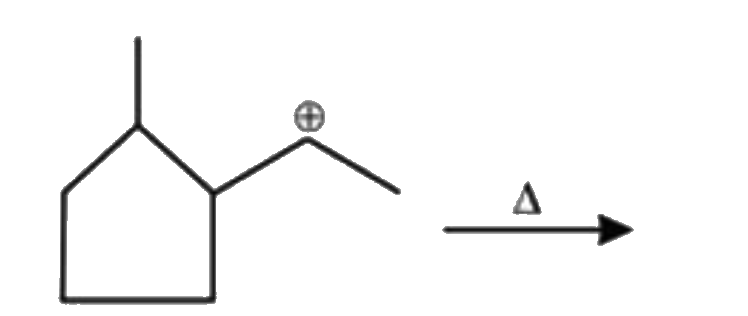Carbocation are
A
Arrhenius acids
B
Bronsted acids
C
Lowry acids
D
Lewis acids
Video Solution
Text Solution
The correct Answer is:D
Due to the tendency to complete the octet of carbon, the carbocation is an exceedingly reactive particle, Since it takes a pair pf electrons to complete the ocet, the carbocation is a Lewis acid, and an extremely powerful one.
|
Updated on:21/07/2023
Topper's Solved these Questions
- BOOK - R SHARMACHAPTER - GENERAL ORGANIC CHEMISTRYEXERCISE - Follow-up test 39videos
GENERAL ORGANIC CHEMISTRY
- BOOK - R SHARMACHAPTER - GENERAL ORGANIC CHEMISTRYEXERCISE - Follow- up Test 47videos
GENERAL ORGANIC CHEMISTRY
- BOOK - R SHARMACHAPTER - GENERAL ORGANIC CHEMISTRYEXERCISE - Follow up test 17videos
GENERAL ORGANIC CHEMISTRY
- BOOK - R SHARMACHAPTER - EQUILIBRIUMEXERCISE - ARCHIVES69videos
EQUILIBRIUM
- BOOK - R SHARMACHAPTER - ISOMERISMEXERCISE - Archives11videos
ISOMERISM
Similar Questions
Knowledge Check
- Question 1 - Select One
(A) Tertiary carbocations are generally formed more easily than primary carbocations.
(R) Hyperconjugation as well as inductive effect due to additional alkyl groups stabilize tertiary cabocations.AIf both assertion and reason are correct and reason is crect explanation for assertionBIf both assertion and reason are correct but reason is not cottect explanation for assertionCIf reason is correct but assertion is incorrectDIf both assertion and reason are incorrect - Question 2 - Select One
Assertion : Carbocation are planar in nature.
Reason : Carbocations are sp2 hybridised.AIf both assertion and reason are correct and reason is crect explanation for assertionBIf both assertion and reason are correct but reason is not cottect explanation for assertionCIf reason is correct but assertion is incorrectDIf both assertion and reason are incorrect - Question 3 - Select One
Carbocations may be stabilised by :
Aπ-bonds only at phenylic positionBπ-bonds only at phenylic positionCπ-bonds at allylic and benzylic position alsoD−I effect


